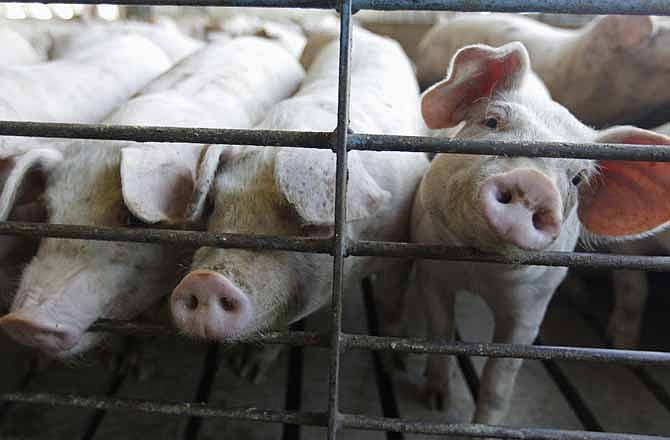A dozen Mid-Missouri residents encouraged the Cole County Commission on Tuesday to consider quickly passing an ordinance regulating concentrated animal feeding operations.
The residents emphasized to the commission that they had only a few weeks to approve an ordinance before Senate Bill 391 becomes a new state law at the end of the month.
The closest existing CAFO to Cole County is on the Cooper/Moniteau county line, just outside of Tipton, according to Cole County Health Department officials. But critics of CAFOs are worried SB 391 will lead to an expansion of CAFO operations in the state.
SB 391 - sponsored by state Sen. Mike Bernskoetter, R-Jefferson City, and signed into law by Gov. Mike Parson in May - prohibits county commissions and county health departments from passing regulations stricter than any state regulations for CAFOs, which are industrial-sized livestock operations.
Under SB 391, a new or expansion of an existing facility may not occur until the Department of Natural Resources has issued an operating permit.
CAFO applicants will have to demonstrate to the DNR they can meet several rules and design criteria, and they must prove they are a legal company, provide neighbor notices, meet buffer distances, and provide plans for animal management, manure generation and nutrient management.
But Brian Smith with the Missouri Rural Crisis Center told the commission the DNR regulations are not enough to properly protect residents from CAFOs.
He told the commission Missouri now has 500 CAFOs.
"In Iowa 15 years ago, a CAFO law was passed similar to SB 391," Smith said. "Iowa now has 10,000 CAFOs, and they also have 700 waterways that have been contaminated because of them."
Smith said asked the Cole County commissioners to look at counties such as Howard County for direction. He said Howard County passed an ordinance that doesn't hurt family farmers and it tries to make corporate farming operations more accountable for how the land is used.
Jeff Hoelscher, Cole County Eastern District commissioner, said he could see both sides of the argument in the case. But he said the county had to also take into account the potential litigation this would mean for the county if it went forward with such an ordinance.
"Be careful what you wish for is something I would keep in mind with this," Hoelscher said.
But Ronda Findlay, a member of the group seeking a county ordinance, said: "Why not try to come up with something so that we could head off problems at the pass."
Kris Scheperle, Cole County Western District commissioner, added the county is limited in what it can do regarding CAFOs because it doesn't have countywide zoning. Cole County voters rejected a proposal to adopt countywide zoning in August 2014.
Cole County Health Director Kristi Campbell has reached out to other county health departments, such as Howard and Henry counties, about their approaches to regulating CAFOs. But she said some of their solutions wouldn't work in Cole County. For instance, she said, the Howard County ordinance is tied to its health board; Cole County does not have a health board.
The commission asked Campbell to do more research on the issue.
"Funding and staffing issues are what I would be looking at because right now we don't have enough of those currently to also be doing CAFO regulations," she said. "We can't do anything about odors from such an operation, and even if we did come up with an ordinance, I'm not sure it wouldn't be null and void come Aug. 28."

